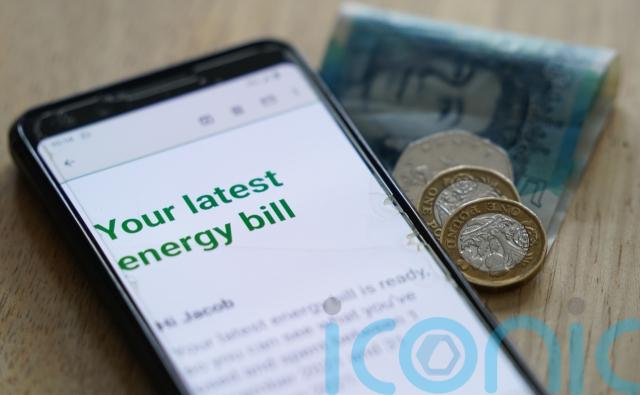
Household energy bills are set to rise by 0.2% from January 1 after Ofgem increased its next price cap.
The regulator said energy bills will rise by about 28p a month for the average dual-fuel household in England, Scotland and Wales.
But Ofgem said that, when adjusting for inflation, the new price cap is £37 lower than between January and March in 2025.
For the average household paying by direct debit for gas and electricity, the overall bill will be £1,758 a year, up from the current £1,755.
Ofgem’s price cap sets a maximum rate per unit and standing charge that customers can be billed when they are not on a fixed tariff.
It does not limit total bills because households still pay for the amount of energy they consume.
Standing charges – the amount consumers pay per day to have energy supplied to their homes – are set to rise by 2% for electricity and 3% for gas or 2p a day, largely due to costs linked to the Government’s Warm Home Discount scheme.
Around 2.7 million more low-income households, including 900,000 families with children, are eligible for the £150 discount this winter.
The 0.2% increase to Ofgem’s price cap comes as a surprise after experts at Cornwall Insight said they expected prices to fall by 1% because of lower wholesale energy prices.
Ofgem said wholesale prices were currently stable and had fallen by 4% over the past three months, but that conditions remained “volatile”.
The price cap change takes into account Government policy and operating costs, including funding the Sizewell C nuclear project, which is thought to add around £1 a month to bills.
Tim Jarvis, director general of markets for Ofgem, said: “While energy prices have fallen in real terms over the past two years, we know people may not be feeling it in their pockets.
The quarterly energy price cap will rise by 0.2% from 1 January 2026.
This will be a rise of around 28p per month for the average household.
This is a cap on energy unit price plus standing charge, not a cap on total bills.
More ⬇️ https://t.co/y6hHpCaDxt pic.twitter.com/b4SDOGfeZ2
— Ofgem (@ofgem) November 21, 2025
“The price cap helps protect households from overpaying for energy. But it’s only a safety net and there are practical ways that customers can pay less for their energy.
“While wholesale energy costs are stabilising, they still make up the largest portion of our bills which leaves us open to volatile prices.
“That’s why we’re working with government and industry to boost clean energy and reduce our reliance on international sources we can’t control.”
Martin McCluskey, the Government’s minister for energy consumers, said: “We know that energy bills remain too high.
“That is why we are taking immediate action, with millions more families receiving £150 off their bills through the expanded Warm Home Discount scheme this winter.
“We are taking the long-term action needed to bring down bills for good with the government’s clean power mission.
“We are also delivering our new golden age of nuclear, with cheaper, clean electricity to power millions of homes, kick-start economic growth and create thousands of jobs.”
Ofgem said that some eight million customer accounts currently paid by standard credit to their energy supplier, but could be saving money if they switched their payment method to direct debit.
Dame Clare Moriarty, chief executive of Citizens Advice, said the 0.2% increase to the price cap “will mean another tough winter” for millions of households in debt to their supplier.
“With bills still drastically higher than before the energy crisis, and due to rise again from April, it’s high time for decisions about the longer term,” she said.

“In next week’s Budget, the Government must cut electricity bills by shifting some policy costs into general taxation, or spreading them more evenly between gas and electricity.
“This could bring electricity bills down by hundreds of pounds, especially for those with the most stretched household budgets.”
Dhara Vyas, the chief executive of Energy UK, said the “urgency” of bringing down bills for people “feels even more stark given the drop in temperatures across the country”.
“The industry is keen to see the Government take action to reduce bills, in a way that brings the most widespread and lasting benefits for customers, for example by removing some levies from electricity costs,” she said.
Subscribe or register today to discover more from DonegalLive.ie
Buy the e-paper of the Donegal Democrat, Donegal People's Press, Donegal Post and Inish Times here for instant access to Donegal's premier news titles.
Keep up with the latest news from Donegal with our daily newsletter featuring the most important stories of the day delivered to your inbox every evening at 5pm.